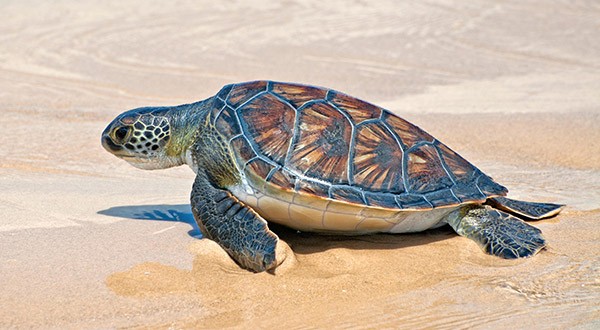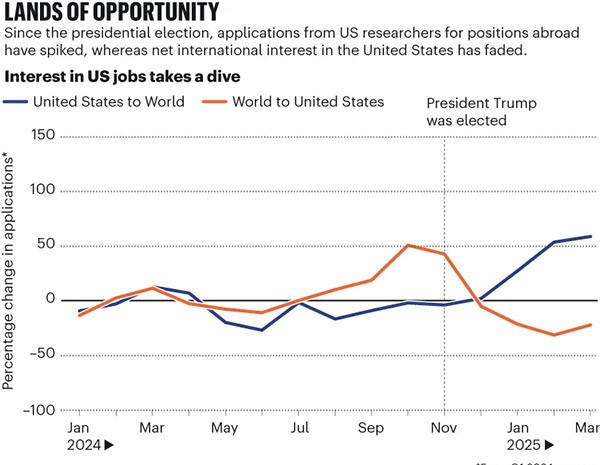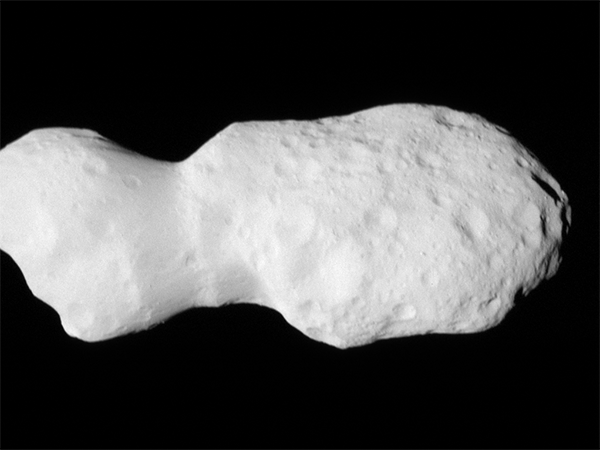You may have full entry to this text by way of your establishment.
Hey Nature readers, would you wish to get this Briefing in your inbox free day by day? Enroll right here.

Inexperienced turtles (Chelonia mydas) like this one dwell in among the most secure places for sea turtles, whereas leatherback turtles (Dermochelys coriacea) dwell in among the riskiest areas. (Itsik Marom/Alamy)
In lots of locations, endangered sea turtles are bouncing again. A survey of turtle researchers in 50 nations discovered that on common, numbers of nesting females have elevated since 2011, and threats similar to looking, air pollution and habitat loss are declining in additional than half of the areas analysed. Nonetheless, issues are getting worse in some places, with the most important drawback being entanglement in fishing nets. “Total, the ocean turtle story is among the actual conservation success tales,” says ecologist Stuart Pimm.
The Related Press | 4 min learn
Reference: Endangered Species Analysis paper
Wild chimpanzees (Pan troglodytes verus) have been noticed gathering to share mildly alcoholic fruits. Researchers caught small teams of chimps of all ages and sexes sharing fermented African breadfruit on a number of events. The fruit’s alcohol content material isn’t excessive sufficient to get the chimps drunk, however they have been seen to decide on fermented items over others. “Chimps don’t share meals on a regular basis, so this behaviour with fermented fruit is likely to be necessary,” says ecologist Kimberley Hockings. It “could possibly be the early evolutionary phases of feasting”.
Reference: Present Biology paper
A vastly influential girls’s-health venture has misplaced a lot of its funding as a part of the cuts ordered by the Trump administration. The Girls’s Well being Initiative is the biggest Nationwide Institutes of Well being effort specializing in long-neglected points similar to menopause, osteoporosis and wholesome ageing. “This trial simply taught us an immense quantity about prevention of illness in girls,” says gynecological oncologist Sarah Temkin. “It is a horrible, horrible factor to have occur.”
An evaluation of Springer Nature’s jobs-board knowledge means that US scientists are wanting overseas because the nation’s scientific enterprise reels from the affect of President Donald Trump’s administration. For instance, purposes by US scientists to jobs in Europe elevated by 32% in March in contrast with the identical month a 12 months earlier. Against this, purposes to US establishments from researchers in Europe dropped by 41%. However many researchers exterior the US say their nations aren’t geared up to capitalize on the chance, with low salaries, job safety and lackluster funding amongst their considerations.
Nature’s information staff is editorially impartial of its writer, Springer Nature — as is this text.

Options & opinion
Many climate-change survival eventualities rely on us discovering a solution to take away monumental quantities of CO2 from the ambiance, however there are many open questions on how this may be made technologically and economically potential. The most cost effective carbon-removal technique: develop extra forests and preserve them wholesome. However corporations are engaged on a number of much less quotidian choices, similar to pumping carbon out of the air and stashing it underground, including issues to oceans or croplands to allow them to soak up extra CO2, or constructing energy vegetation that burn biomass and completely retailer the carbon emissions. All have potential downsides, together with the priority that they is likely to be used to justify the continued burning of fossil fuels. “We’re actually attempting actually arduous to not burden the subsequent era with the large impacts of local weather change,” says Earth-system scientist Wolfgang Lucht. “We must also not burden them with having to implement planetary-scale carbon elimination.”
“If nobody talks about local weather change, folks develop into much less prone to discuss it as a result of it’s perceived as a taboo matter,” says climate-communication researcher Margaret Orr. On the flipside, discussing local weather change can spark curiosity and motion. Orr co-authored a current research on what stops folks from greedy the climate-conversation nettle, and she suggests including “little sprinkles” of local weather chat that may resonate together with your listener — for instance, point out its affect on substances with a pal who loves cooking. And in relation to social media, consider the ‘lurkers’ fairly than specializing in the blowhards. “Your effort to unfold reality about local weather change is prone to attain them with out you ever realizing it.”
Reference: PLOS Local weather paper
The ultimate episode of the podcast miniseries What’s in a reputation explores how the terminology utilized in physics can serve to confuse fairly than make clear. “Physicists and mathematicians, not like a whole lot of different scientists, actually must make stuff up typically,” quantum physicist Ian Durham tells the Nature Podcast. “As a result of they want a solution to describe one thing extraordinarily complicated.” However the photographs that chosen phrases evoke don’t all the time correspond to actuality: electrons don’t ‘spin’ and ‘darkish matter’ isn’t darkish (and may not be made from matter). In these instances, the names we use can inadvertently ship scientists down very particular analysis avenues whereas distracting them from others.
Subscribe to the Nature Podcast on Apple Podcasts, Spotify or YouTube Music, or use the RSS feed.
Picture of the week

On its second flyby of an asteroid, NASA’s Lucy spacecraft took an in depth have a look at the roughly 150 million-year-old fragment Donaldjohanson. The craft took a collection of pictures (proven right here as a timelapse) because it flew roughly 960 kilometres from the rock. The fragment’s uncommon form — just like a peanut or a bowling pin — means that it shaped from the collision of two smaller our bodies. First found in 1981, the rock is called after palaeoanthropologist Donald Johanson, who found the hominin fossil Lucy, the spacecraft’s namesake, in 1974. (NASA Press Launch | 4 min learn) (NASA/Goddard/SwRI/Johns Hopkins APL)
At the moment I’m nonetheless within the midst of the post-holiday transition from nature to town — a journey richly described by author and naturalist Craig Childs as “the marvel killer”. One solution to ease the method and faucet again into the marvel is listening to an episode of Radio Lento, a podcast of high-quality environmental soundscapes recorded in the UK.
Whereas I take an audio journey to a rocky West Somerset seashore, why not ship me your suggestions on this text? Your e-mails are all the time welcome at briefing@nature.com.
Thanks for studying,
Flora Graham, senior editor, Nature Briefing
With contributions by Jacob Smith
Need extra? Signal as much as our different free Nature Briefing newsletters:
• Nature Briefing: Careers — insights, recommendation and award-winning journalism that will help you optimize your working life
• Nature Briefing: Microbiology — essentially the most ample dwelling entities on our planet — microorganisms — and the function they play in well being, the atmosphere and meals programs
• Nature Briefing: Anthropocene — local weather change, biodiversity, sustainability and geoengineering
• Nature Briefing: AI & Robotics — 100% written by people, in fact
• Nature Briefing: Most cancers — a weekly e-newsletter written with most cancers researchers in thoughts
• Nature Briefing: Translational Analysis — covers biotechnology, drug discovery and pharma